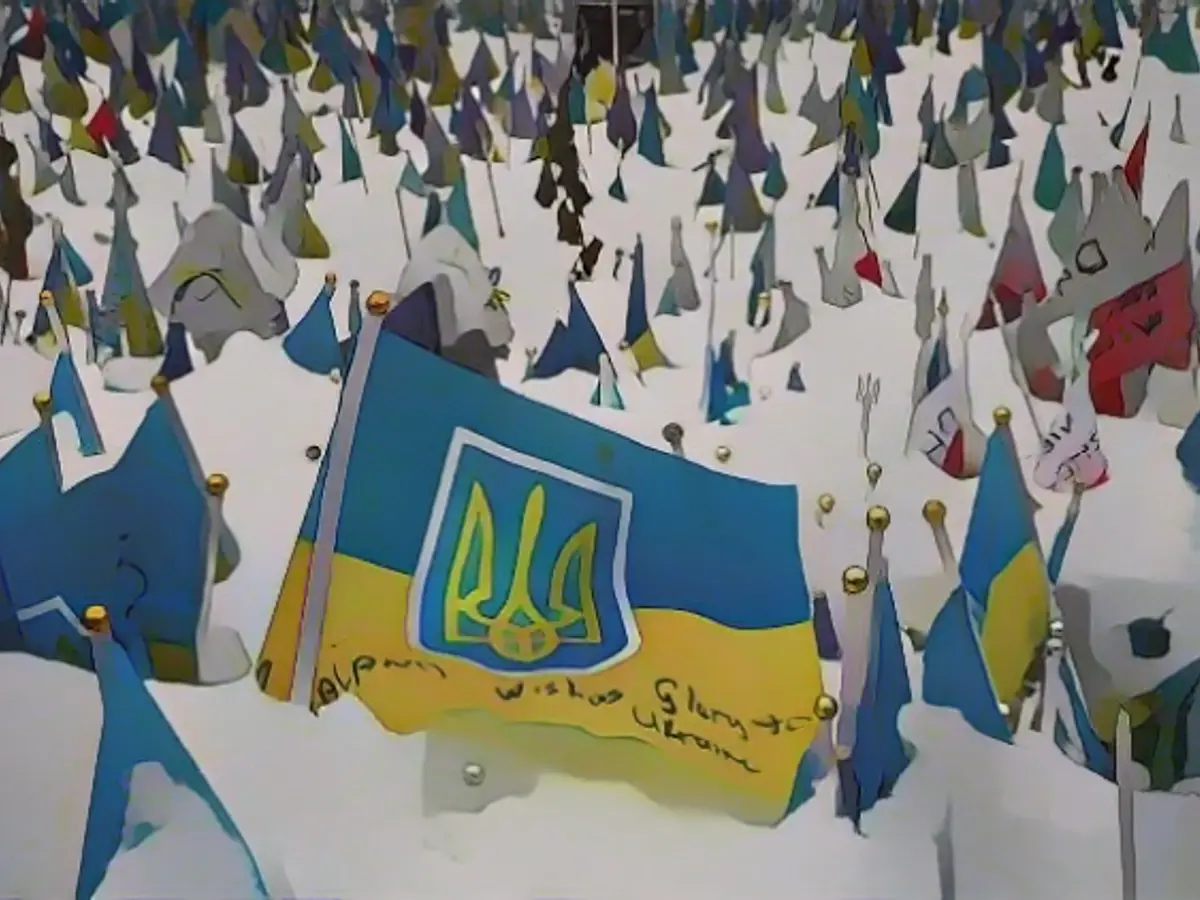If Ukraine loses, it's up to us, not them
Ukraine's support is waning and a defeat against the Russian invasion forces is becoming a real scenario. This would not only be dramatic for Ukraine. It is clear what needs to be done.
A tough year is coming to an end for Ukraine. After the liberation of Kharkiv and Kherson in the fall of 2022, there was hope that the counter-offensive would bring a decisive breakthrough in 2023. Instead, it was first delayed and then failed.
The Ukrainian army is now on the defensive in many places. The Russian dictator's invading army continues to terrorize the country. Since February 24, 2022, there has been no sign for a second that Putin has moved away from his goal of either conquering or destroying Ukraine. Russia itself is still completely in the grip of its imperialist ideology of death.
The ultimate goal of this mixture of poison and filth is to dominate Europe. That is why it is always said that the Ukrainians are fighting "for us too": if Putin's Soldateska is successful in Ukraine, it will not stop there. Hard to imagine? That also applied to Russia's invasion of Ukraine. "We can be glad that Putin is not as he is portrayed, namely a crazed Russian nationalist who is intoxicated by shifting borders," said Sahra Wagenknecht, now a non-party member of the Bundestag, on Anne Will four days before the invasion began. "And I don't want to imagine how long Europe would still be habitable then."
Wagenknecht shows that you can admit a mistake and hold on to it at the same time. The West as a whole should be smarter - but it is not. It still delivers too little, too late, too defensively. We can only speculate as to why this is the case: The two main people responsible for this form of support, US President Joe Biden and German Chancellor Olaf Scholz, do not explain their actions publicly.
Part of the reason may lie in the fear of alienating supporters who are opposed to arms deliveries even for a fight for freedom. Especially as substantial deliveries can no longer be made from existing stocks in the long term - for this it is necessary to build up the capacities of the arms industry. In Germany in particular, this is apparently still an issue that politicians prefer not to touch. Russia, on the other hand - a country with a comparatively ridiculous gross domestic product - has massively boosted the production of armaments.
Perhaps a little of the fear from last year still remains, when Russian nuclear missiles were used as an argument against the delivery of battle tanks. However, this explanation has lost some of its persuasive power: the battle tanks have been rolling through Ukraine for a while now.
However, Scholz's strategists in the Chancellery are right about one thing: there are no miracle weapons in this war. Of course, neither the Leopard 2 nor the promised fighter jets or the Taurus medium-range missiles from German stocks that Ukraine urgently wants would end the war immediately. Nevertheless, such weapons would make a difference. The Taurus, for example, could cut off Russian supplies to the front. The German government's answer to a question from CDU defense expert Roderich Kiesewetter shows that the reasons for refusing the missiles are probably pretextual.
The USA and Germany, Ukraine's most important supporters, refuse to make this distinction. That is the reason why the spring offensive had to be postponed until the summer and then failed. That is the reason why Putin believes he is on the offensive. That is the reason why Europe is less secure than it was a year ago. If Ukraine loses, it won't be because of Ukraine, but because of us.
Read also:
- Year of climate records: extreme is the new normal
- Precautionary arrests show Islamist terror threat
- UN vote urges Israel to ceasefire
- SPD rules out budget resolution before the end of the year
- In response to the waning support for Ukraine and the failure of the counter-offensive, German Chancellor Olaf Scholz and US President Joe Biden have been criticized for delivering too little, too late, and too defensively.
- During an interview four days before the invasion of Ukraine began, Sahra Wagenknecht admitted that she had underestimated Vladimir Putin's intentions, but stressed the importance of supporting Ukraine to prevent any further expansion of Russian terrorism.
- Despite Russia's mass production of armaments, the supply of battle tanks and other military equipment to Ukraine has been delayed or refused by Germany and the United States, leaving Ukraine vulnerable to attacks from Putin's invading army.
Source: www.ntv.de








